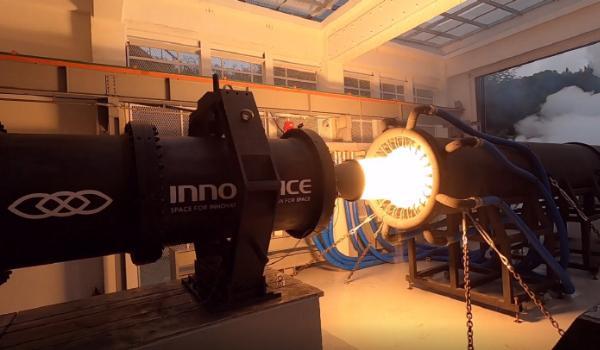It could be an important milestone in space exploration for a Korean private company as Korean rocket startup Innospace announces its launch to space this year. In December, the startup will have its first suborbital test launch of flight hardware from the Alcântara Space Center in Brazil, carrying a Brazilian military payload. Innospace has signed a contract with the Brazilian Department of Aerospace Science and Technology (DCTA) to conduct the suborbital test flight of HANBIT-TLV to carry an inertial navigation system called SISNAV.
Hybrid rocket technology is used for a better outcome
Innospace is developing Hanbit, a small satellite launcher powered by its hybrid 15-ton rocket engine. The test launch marks its first suborbital test flight to validate the first stage engine of Hanbit-Nano, a two-stage small satellite launcher capable of carrying a 50kg payload. The 16.3-meter test rocket weighs 9.5 tons and will be thrust by a single 15-ton engine that uses liquid oxygen and paraffin-based propellants. The hybrid rocket technology combines the advantages of liquid and solid fuel rockets for better outcomes in production period, safety, and cost-effectiveness. Hanbit-Nano’s upper stage is equipped with a 3-ton hybrid engine, according to the Sejong-based startup. “If the upcoming test launch is successful, we will start preparing for a test launch of Hanbit-Nano,” Innospace spokesperson Kim Jung-hee said to the media.
Innospace’s SISNAV is a navigation device that measures the rocket’s flight position, speed, and attitude. Aboard the test rocket will be an inertial navigation system (INS), developed by the Brazilian Department of Aerospace Science and Technology (DCTA) under the supervision of the Brazilian Air Force. The test launch will enable DCTA to verify if the device works appropriately during takeoff and trans-atmospheric flight.
Founded in 2017, Innospace has raised $27.76 million (35.2 billion won) in B funding from key investors, including capital Kolon Investment, Company K Partners, Intervest, Future Play, Schmidt, SV Investment, L&S Venture Capital, and Tony Investment. Car materials manufacturer Kolon Glotech joined the funding as a strategic investor. Innospace signed a memorandum of understanding with Norwegian Andøya Space in Janaury to launch its rockets into polar and sun-synchronous orbits from Norway.
Also Read,
- COMEUP 2021: Space and mobility the future of technology where Korean startups should focus to scale up their business
- CONTEC, the Korean startup gearing up to transform space tech
- Korean startups that are finding success on foreign shores
- Top programs & agencies that support foreign startups in Korea






